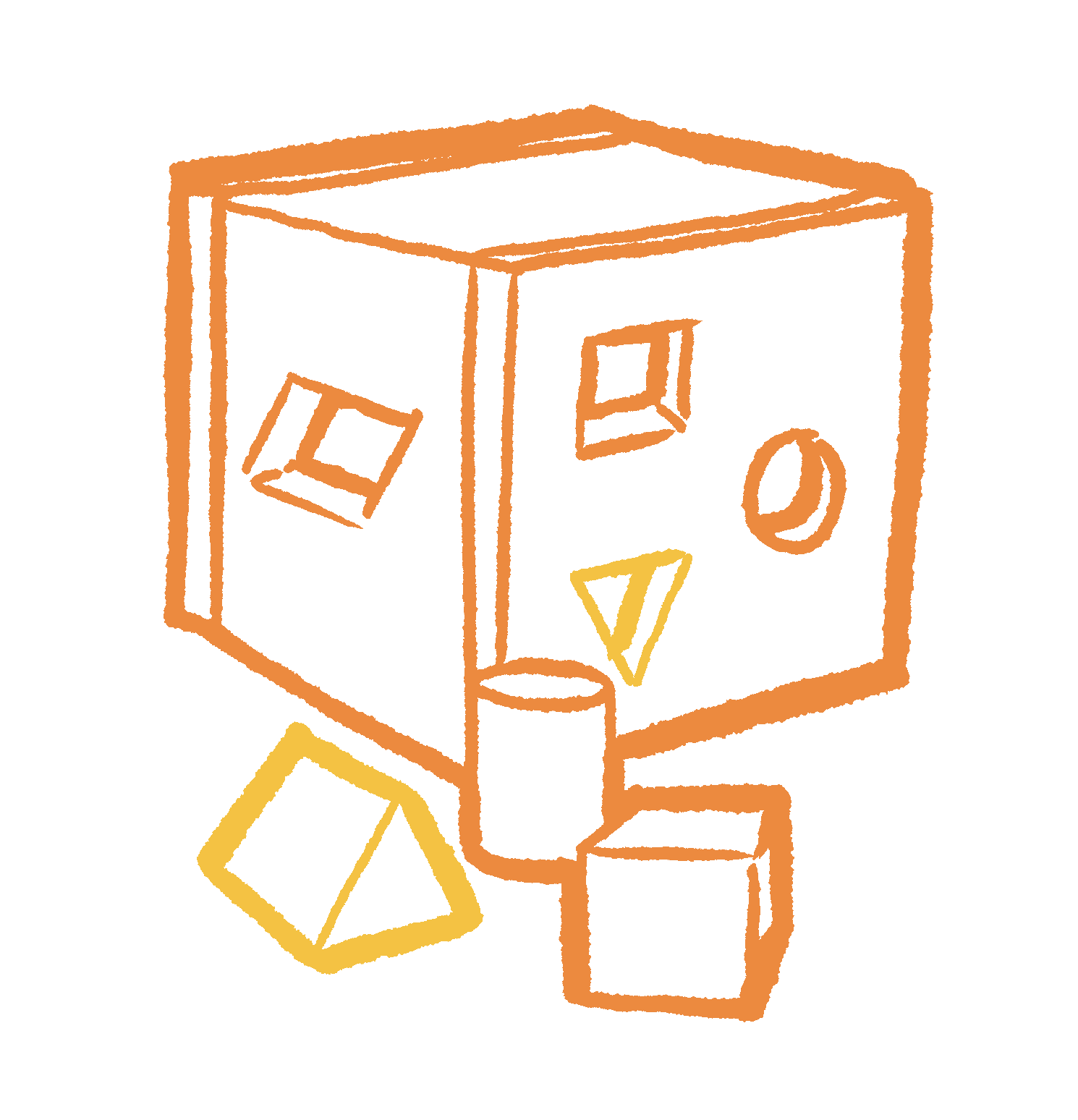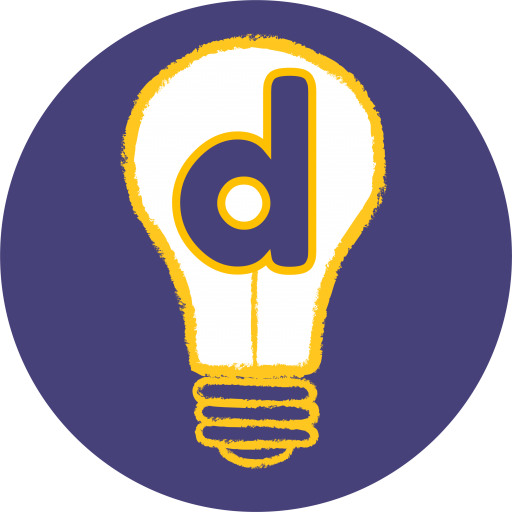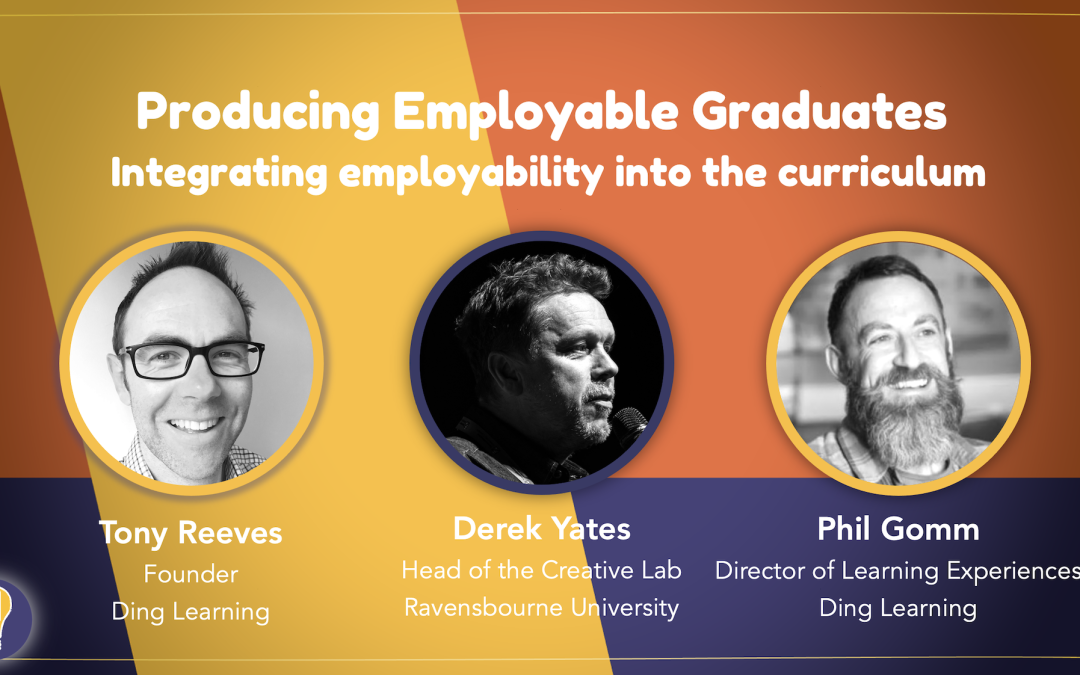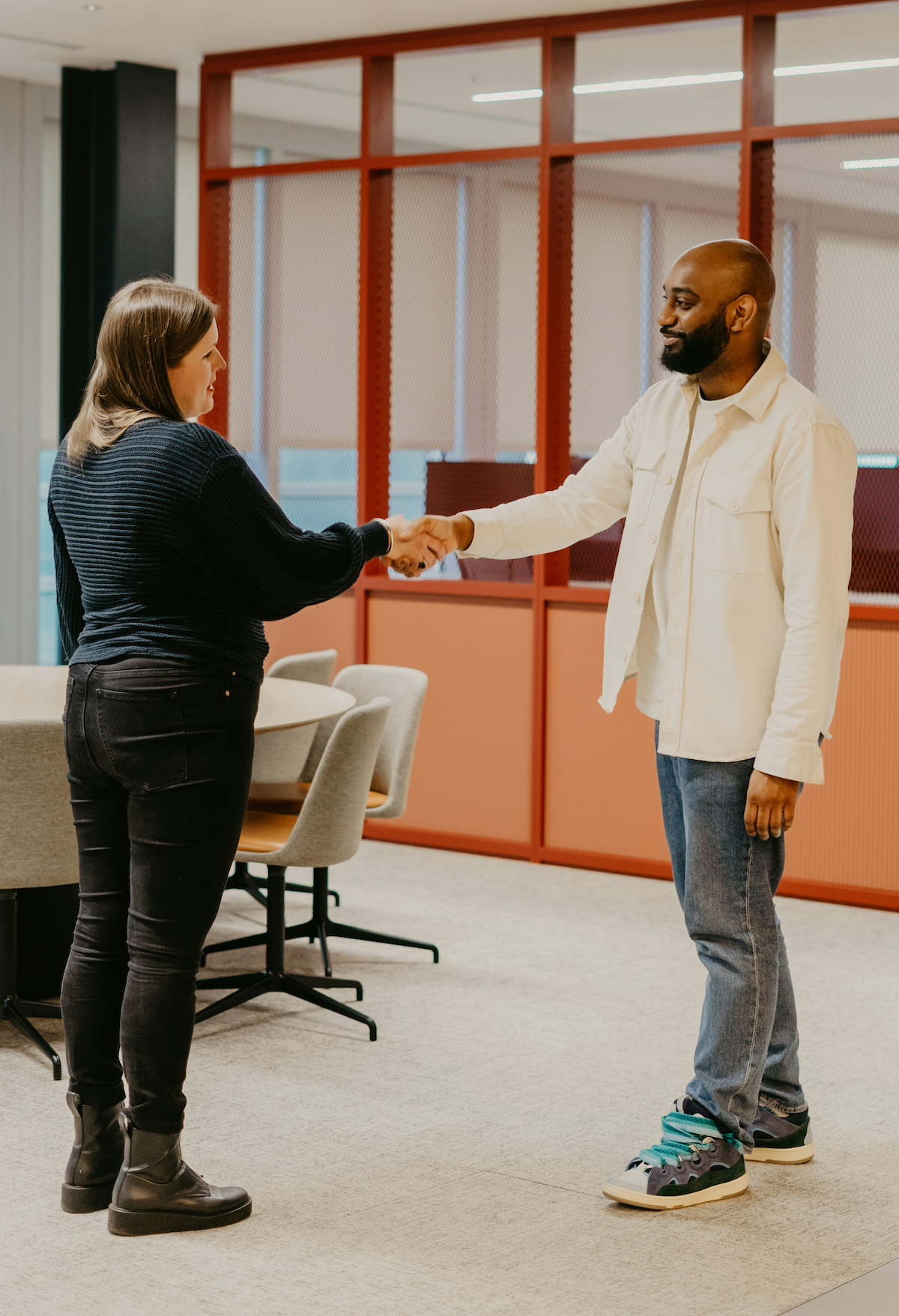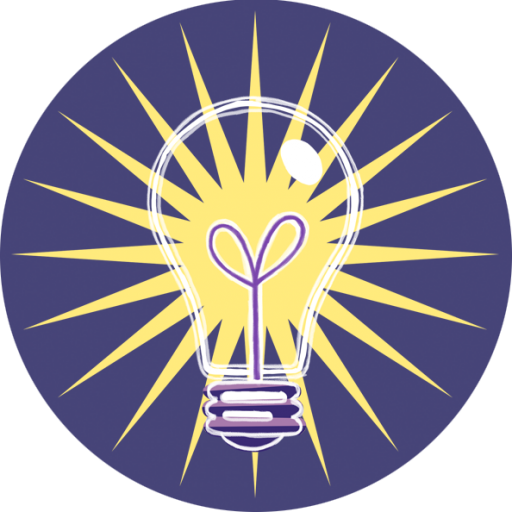Whether we like it or not, producing employable graduates is the number one currency in Higher Education. Yet despite the hard work of many dedicated professionals to improve graduate employability, alarming statistics persist.
A recent ISE report revealed that 27% of graduates don’t meet employers’ expectations. Yet simultaneously, graduates struggle to find jobs amid market saturation and employers’ unrealistic demands.
Derek Yates, Head of The Creative Lab at Ravensbourne University, is working hard to help creative graduates become more employable. So Phil and I thought he would be an ideal person to talk to about this problem.
More than just a creative agency
When discussing employability in creative education, institutions often default to establishing “creative agencies” where students complete live briefs for external clients. However, as Yates, points out, this approach can be problematic.
“The problem with taking students on client briefs is they’re not professional, and they need to be allowed to be that,” Yates explains. “There’s a danger of undermining the industry in terms of pricing and suggesting that what professionals do is so easy that even students can do it.”
Instead, Ravensbourne has developed Creative Lab as “a space where industry and education can discover and learn together.” This subtle distinction shifts the power dynamic from service provision to collaborative learning, benefiting both students and industry partners.
Integrating employability into the curriculum
When institutions try to tackle employability, a common problem is leaving it too late in the learning experience. Producing work-ready graduates requires more than a bolt-on service or final-year workshop, it needs to be integrated much earlier in a course. Ravensbourne’s approach includes a university-wide work-based learning module that students complete at the end of their second year, giving them focused time to engage with industry projects without competing academic priorities.
Yet effective employability integration begins much earlier at Ravensbourne. Their Professional Life Practice module runs across multiple semesters, starting with fundamental skills like understanding what their subject is, developing proactive behaviours, and teaching research skills. This progresses to industry research, and culminates in practical experiences.
The hidden curriculum and professional behaviours
While subject-specific learning outcomes dominate formal curricula, the “hidden curriculum” – those unwritten rules and professional behaviours that govern success in any discipline – often remains tacit. Phil pointed out that we need structures to address “behaviours that would either disempower or produce power in young people.”
This hidden curriculum includes seemingly mundane aspects like punctuality, communication confidence, and collaborative behaviours – elements rarely explicitly taught but integral to professional success. Bringing these elements into formal learning outcomes shows students that employability isn’t just about subject expertise but about socialisation into professional communities of practice.
This is also an issue of social justice. For students from disadvantaged backgrounds—those working multiple jobs, without industry connections, or facing other barriers—making this hidden curriculum explicit is about empowerment.
Yates’ Creative Lab produces work-ready graduates by creating accessible experiences through partnerships with organisations like Creative Conscience and New Wave magazine. One student’s feedback captures this perfectly:
“The difference that work-based learning made for me is that I’ve had a conversation with an employer.”
These small victories in navigating the hidden curriculum matter just as much as high-profile collaborations with major brands.
Redefining employability
If we are to prepare the current and future generations of students for the workplace, we need to expand our definition of employability beyond simply landing that first job. Phil suggests such a definition:
“The capacity to apply and adapt knowledge effectively in variable contexts; the possession of fundamental attributes that enable individuals to mobilise their knowledge in response to uncertainty.”
Here are three ways to do this:
Prepare students for career complexity
- Professional life includes challenges like redundancy, negotiating pay rises, and career pivots. Create forums and scenarios where graduates can discuss these realities, potentially involving alumni in ongoing conversations with current students.
Make the hidden curriculum visible
- Incorporate professional behaviours into learning outcomes, making them central to assessment rather than peripheral concerns. This levels the playing field for students by showing everyone the factors that really power success and progression. Scenario-based learning is one highly effective way of achieving this.
Initiate honest conversations about success
- Even the most successful professionals simultaneously experience confidence and uncertainty. Teaching students to integrate these seemingly contradictory perspectives prepares them for sustainable careers rather than offering false guarantees.
We won’t produce work-ready graduates through with CV workshops and guest speakers. Sustainable employability requires an integrated, developmental journey that reveals the hidden curriculum of professional practice from the early stages of a learning programme.
If we can better prepare graduates for the complex realities of professional life, we will be doing the important work of preparing them for success while also giving them the skills to shape the workplace.
Want to become a qualified learning designer?
We run a PGCert, PGDip and MA in Creative Teaching and Learning Design.
